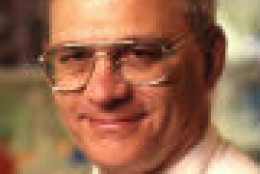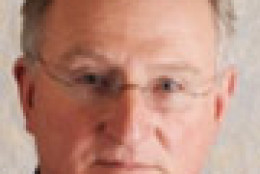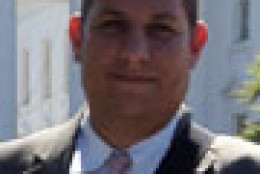National Institutes of Health
-
A new report from the Government Accountability Office says that some agencies, including the Departments of Energy, Transportation and Health and Human Services, experienced stalled grants and contract activity during the government shutdown of 2013.
November 17, 2014 -
Conversation with Authors: Professor Harry Lambright on Leaders and Leadership - Lessons from Robert Gates, Francis Collins, and NASA Administrators
August 29, 2014 -
The Children's Inn at NIH will not be involved with AFCEA-Bethesda's annual fundraising gala in 2015 after a change in the number of charitable recipients involved in the event.
July 10, 2014 -
Each year, sick people are told they have diseases so rare, they can't be diagnosed. Investigators at the National Institutes of Health looked at hundreds of cold cases. They've created a new network to tackle these mysterious diseases. The Undiagnosed Diseases Network will recruit doctors to conduct research that planners hope will lead to better understanding of these puzzling symptoms and find treatments. Six universities around the country have signed on. NIH Program Director Dr. William Gahl joined Tom Temin on the Federal Drive to discuss the new effort.
July 07, 2014 -
At one time, medical researchers conducted their studies only on men. That started changing more than 20 years ago. Now, the National Institutes of Health says more than half of human research subjects are women. But when it comes to research on animals, or even cells, most continues to be done on males. Janine Clayton wants to change that. She's the Associate Director for Research on Women's Health at NIH. She joined Tom Temin and Emily Kopp on the Federal Drive to explain the new research policy.
May 28, 2014 -
Proponents of government-wide acquisition contracts (GWACs) say agencies are starting to understand their value. They are optimistic even though less than 15 percent of all federal IT spending goes through GWACs now. Rob Coen, acting director of NIH's Information Technology Acquisition and Assessment Center, spoke with Federal Drive host Emily Kopp about the GWAC programs NIH manages. Kopp caught up with Coen at the recent Acquisition Excellence Conference.
March 26, 2014 -
GSA, NASA and NIH are providing agency customers more insight into what they are buying, how they are buying it and what prices they are paying. OFPP plans to launch the Prices Paid Portal later this year. But others say it's not about the data, but the outcomes agencies are trying to achieve.
March 21, 2014 -
Health care data comes from unexpected places.
March 20, 2014 -
Can science agencies bounce back from sequestration?
March 14, 2014 -
Former director of the National Center for Health Statistics' Division of Vital Statistics was named one of Federal News Radio's Top Leaders in Federal Service last February.
December 23, 2013 -
President Barack Obama is being updated by members of the White House about the impact of the government shutdown on key federal agencies and programs. Over the weekend, White House Chief of Staff Denis McDonough briefed Obama on the shutdown's impact on the government's research efforts, according to the White House.
October 14, 2013 -
Phil Lenowitz was honored with a Causey Award for creating and developing initiatives beneficial to minorities, veterans and people with disabilities at the National Institutes of Health.
September 23, 2013 -
Dr. Michael M. Gottesman has spent four decades researching cancer cells and overseeing the development of anti-cancer drugs at the National Institutes of Health.
July 30, 2013 -
Overseeing the Division of Vital Statistics at the Centers for Disease Control's National Center for Health Statistics in Hyattsville, Md., Charles Rothwell was called a man who "epitomizes everything a top shelf leader should be." He has been named one of Federal News Radio's Top Leaders in Federal Service.
February 27, 2013 -
Sen. Chuck Grassley (R-Iowa) is concerned new regulations may make whistleblowers even more reluctant to report tax fraud to the IRS. OMB Controller Danny Werfel says $85 billion in cuts under sequestration would hurt every state. Maj. Gen. Brett Williams says the U.S. Cyber Command is trying to figure how to normalize operations alongside air, land and sea capabilities. Lynn Singleton, director of environmental services at Lockheed Martin, talks about helping agencies move their email to the cloud. Dr. Milton Corn explains why The National Library of Medicine is monitoring social media.
February 25, 2013







